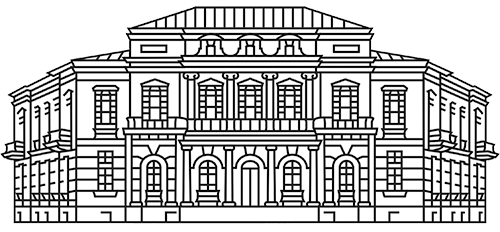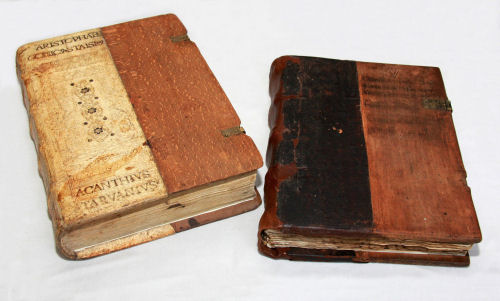
The Wroblewski Library is setting up a museum to tell the history of the Lithuanian book and scholarly thought. Universal book museums of this kind, most often established at great libraries, have long existed in many European cities. The Wroblewski library holds copious historic collections from clay cuneiform tablets to various 19th-20th-century documents important for the history of Lithuania. After the reconstruction of the Library, this cultural treasury will be open for public viewing.
The metaphor of Bibliopolis or the city (state) of books has been selected as best representing the idea of the book museum. This metaphor serves to embody a consistent museum narrative on the development of the books (in a broad sense) and their significance for our culture. Bibliopolis will have an Old Town, New Town and suburbs. Visitors to the Old Town will be able to view the display “Prayer House”: a Catholic and an Orthodox churches, a synagogue, a kenesa, and a mosque (the topic “Book and Faith”). “Artisan Guilds” will represent such vital topics for the history of the book as the emergence and spread of writing in Lithuania, paper production, printing and bookbinding. The display entitled “University” will be dedicated to the development of scholarship and research.
The display called “Market” will expand on a phenomenon unique for the Lithuanian book history, book smuggling. “Prison” will deal with censorship, and “Hospital”, with the anatomy of the book and with its “healing”, i. e. restoration and conservation. “Fashion House” will explore various aspects of the development of Lithuanian book art. Special displays will be dedicated to the history of the Wroblewski Library, and to its founder, Tadeusz Wróblewski. There also are planned other topics for various aspects of the book and related issues of everyday life.
“Stars of Bibliopolis” is a cycle of lectures on the most interesting exhibits in the forthcoming book museum. The lectures are given by staff members of the Wroblewski Library and by invited lecturers. The five lectures read in 2020 deal with a wide range of topics: a rare panegyric in honor of Ivan Mazepa, the Cossack Hetman of Left-Bank Ukraine, and his triumphant arrival in Kyiv (Violeta Radvilienė, “A Skull for Mazepa”; for more on this publication>); a Lithuanian map printed in 1900 in St. Petersburg (Dr. Daiva Narbutienė, “A Publication That Slipped Through the Net of Censorship”); the 27 Book Lovers, a bibliophilic society that existed in Kaunas in the 1930-1940 (to virtual exhibition >) (Dr. Alma Braziūnienė, “On How Three Nines are Related to the Book and Bibliophilia”); the Torah (Dr. Lara Lempertienė, “The Torah: Sacred Unity of Text and Object”); and the Zhyrovichy Gospel (Dr. Andrius Jurkevičius, “A Treasury of Colored Miniatures: The Zhyrovichy Gospel”, for more on this manuscript book >).
The lectures (in the Lithuanian language) are in open access online. The lecture cycle “Stars of Bibliopolis” is to be further continued.
![]() LMA VB RSS V-17 2-401
LMA VB RSS V-17 2-401

